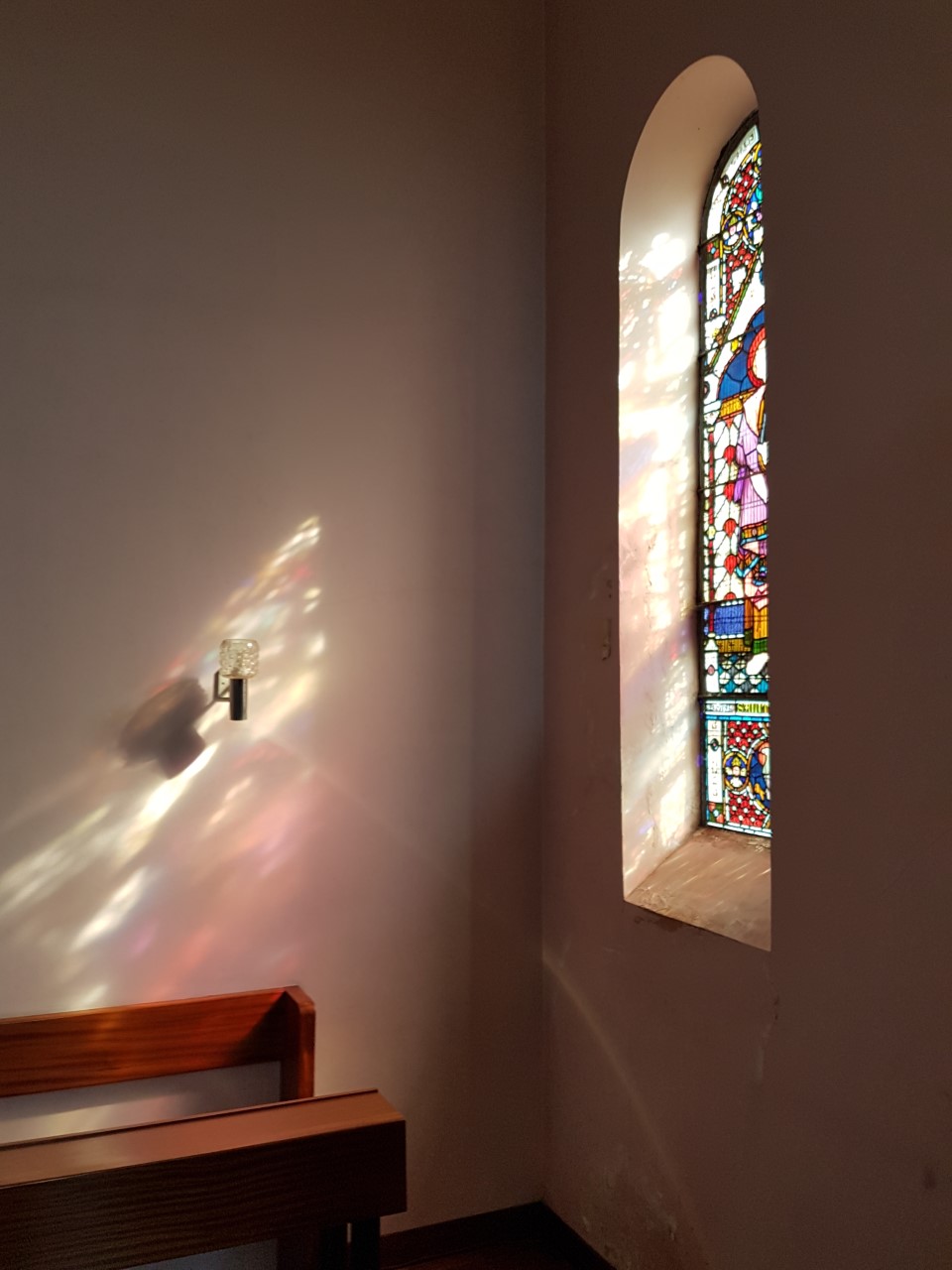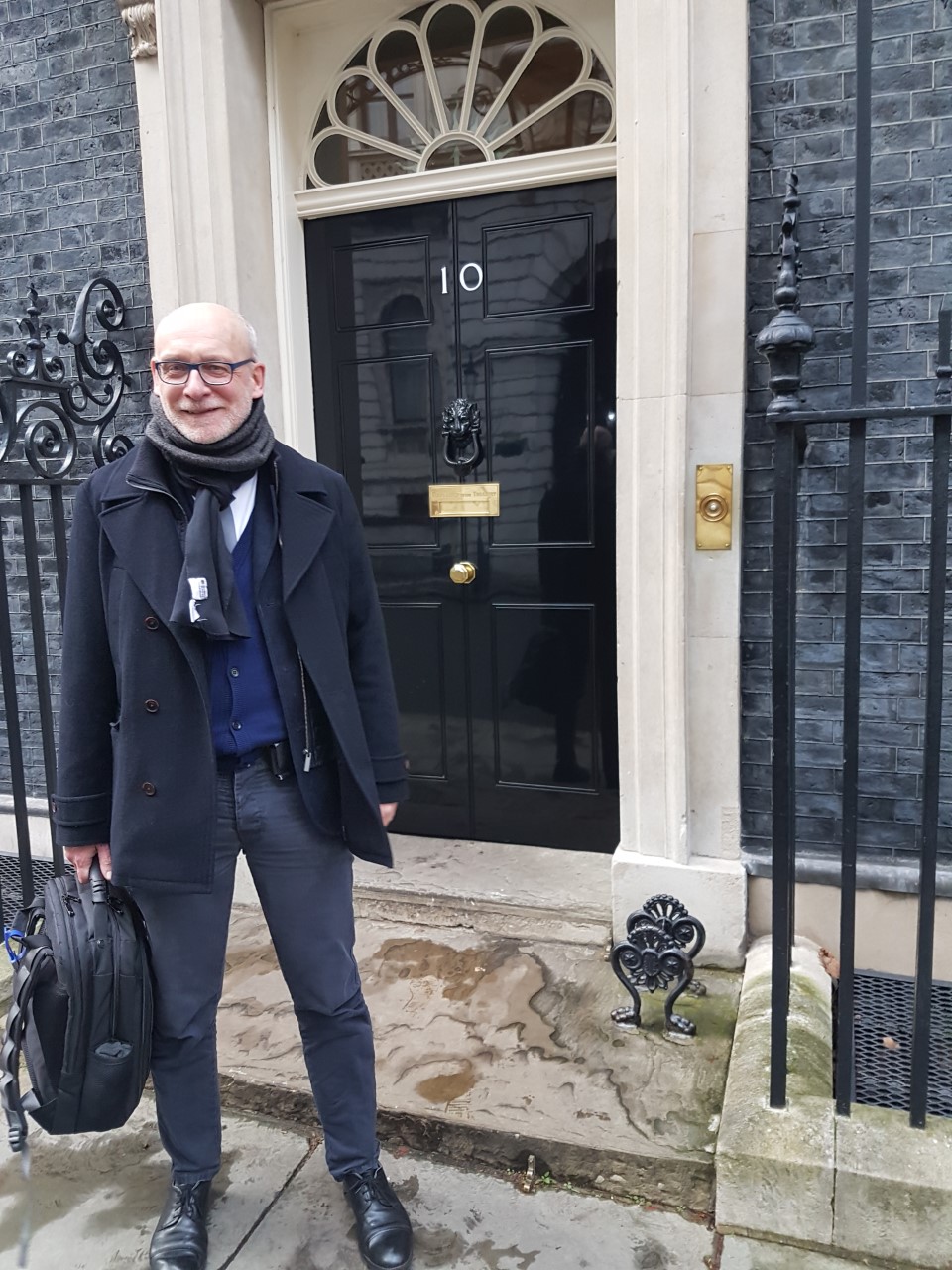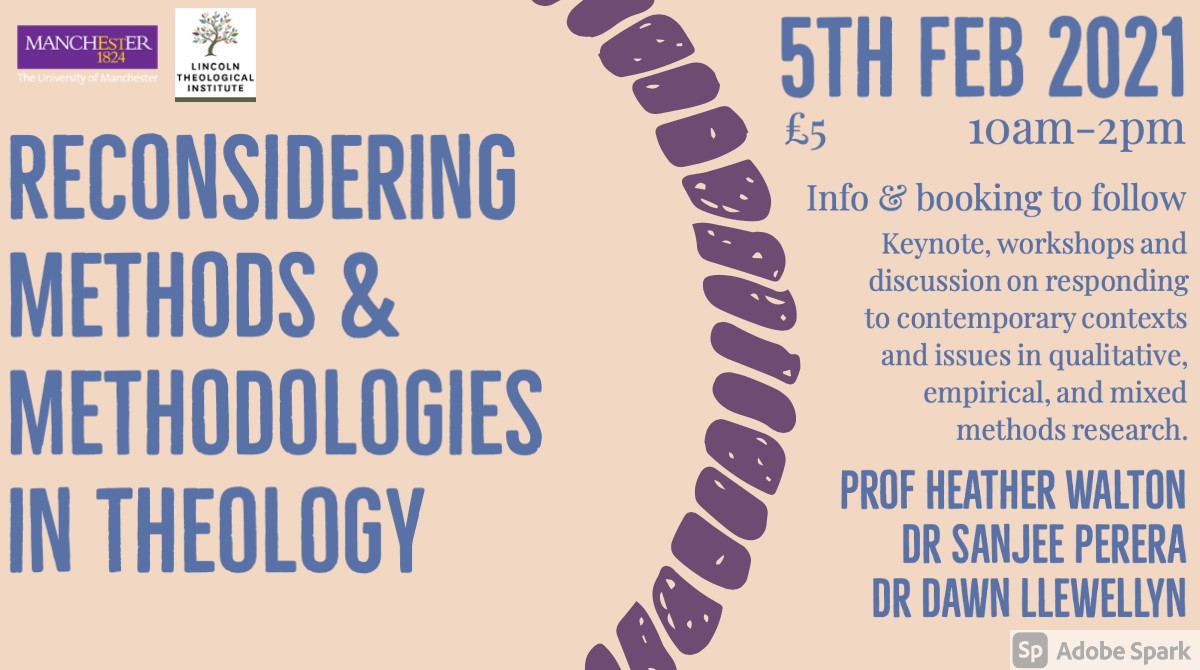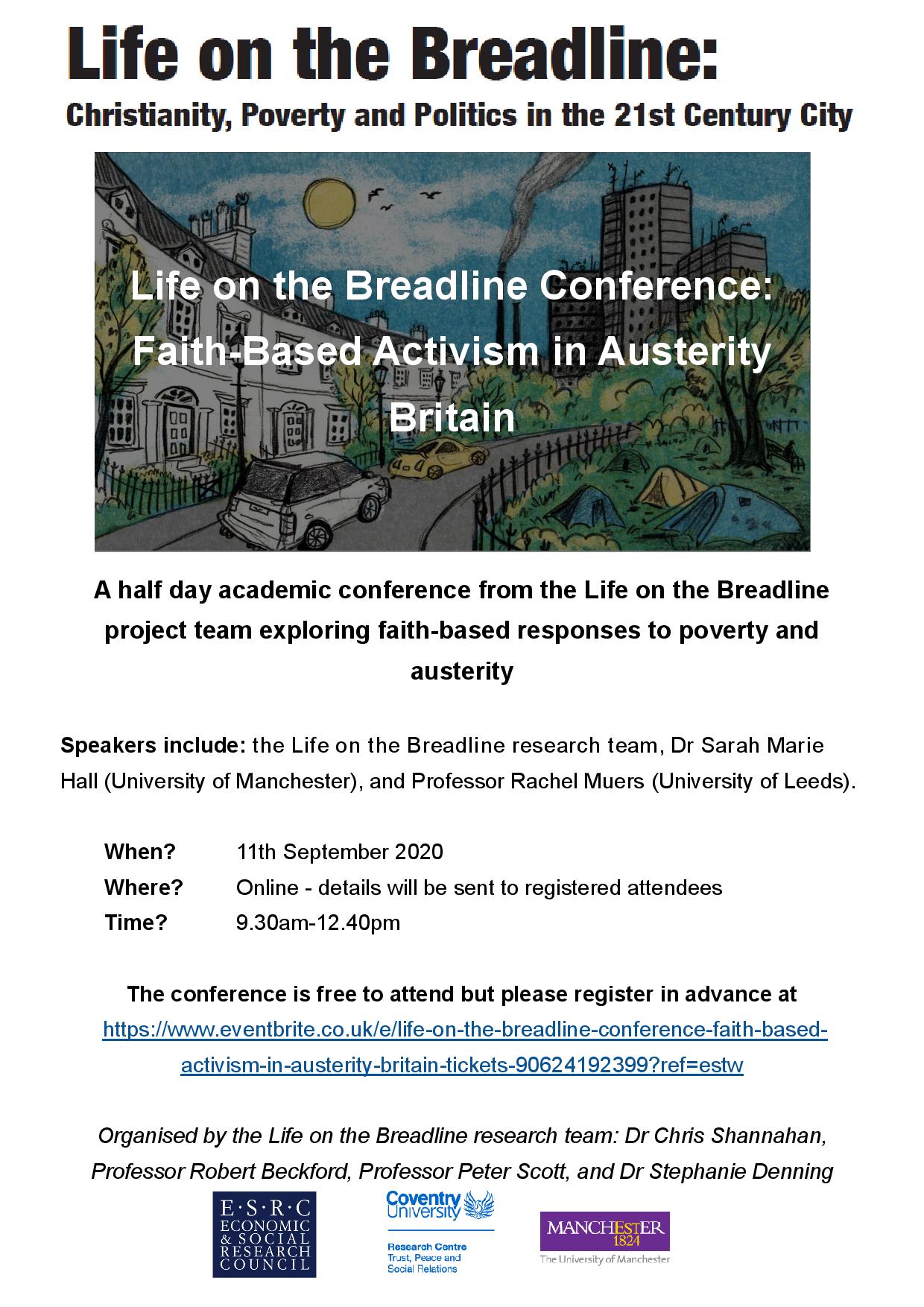Embodied Beginnings: Planning Research during the Pandemic
 September 7, 2020
September 7, 2020 Starting a new research project is always a daunting task, and even more so under the present circumstances. Central to my research is collaboration with anti-poverty groups, which in the past has relied on face to face interactions, particularly in creative workshops. I enjoy sitting together with others – warming my hands round a mug of tea and passing the biscuits round the circle – listening to people talk about their experiences and seeing others in the room reciprocate with murmurs of understanding and encouragement. I value the unexpected encounters and conversations that emerge in how people respond to prompts and questions, in seeing shared ideas and images form between us as a group. For me, noticing and being part of these interactions – this inhabiting of bodies and spaces – is where much of the research lives. Thinking about how theological research practices are themselves embodied is as much a part of this project as the questions about how everyday aspects of anti-poverty activism are deeply embodied practices.
Of course, various factors around the pandemic will require considering the qualitative methods undertaken in the research collaboration. For now, much of these research interactions will need to be carried out via videocall, phone, or sending out resources for creative journaling by post. However, the lack of ‘in person’ methods will not change the fact that research is always a material practice. Just because interactions happen at a distance or via technology does not meant that they are ‘disembodied’, rather the research will be differently embodied. As Mayra Rivera contends in her work Poetics of the Flesh (2015), our bodies continue to be shaped by and shape discourses around race, gender, class, sexuality, disability and global location; this remains true when performing distanced or digital interactions.
Due to this, the current context requires thinking more about the ethics of collaborative research and how the methodologies and values of a research project are practised. The Covid Realities project [https://covidrealities.org] has already hosted some key conversations around conducting participative research during this time. They have highlighted the delicate balance: one the one hand, there is the need for in-depth analyses of how existing inequalities have been further entrenched during this pandemic; on the other, recognising that the ethical concerns around power imbalances in research and the challenges of asking participants to give their time and energy may also be exacerbated. In their recent webinar series, presenters reflected on how the values of participative research can be refigured during this time, for example in thinking through questions of who is excluded or included by any chosen research method or creating a sense of community through research practices.
This thinking is really critical, and it is something that I will be considering over the course of the project, in conjunction with the collaborating communities. How do we translate some of the values of collaborative, creative research into this new context? What does it look like to encourage the connection between people when meeting via videocall? How do we best involve the skills and insights of all collaborators in all areas of the research process? How can we ensure that research is not ‘extractive’ but involves collaborators in analysing and interpreting the emerging themes and concerns? How can we share this wisdom and analysis with wider audiences? For me, these questions about collaborative, non-extractive research are not only an important ethical element in conducting qualitative research but are also vital to the theological practicing of research. They are questions about how theological research can both replicate and disrupt inequalities in power and resources. They are questions about how theological knowledge is formed, and by whom. I look forward to discussing these questions over the next two years with collaborators and colleagues.
Wren Radford (LTI postdoc researcher, 2020-22)
Conference, Theology in the time of Covid-19
 July 25, 2020
July 25, 2020 The Director was a member of the conference committee for the above online conference that took place in June 2020. 120 people engaged with 20 papers across two streams.
Papers from the conference are available here:
https://www.winchester.ac.uk/research/enhancing-wellbeing-nurturing-the-individual/christian-theology-in-the-midst-of-covid-19/
COVID-19: Going the social distance
 March 30, 2020
March 30, 2020  30 March 2020
30 March 2020
One of the most moving images to emerge over the weekend was, in my view, that of Pope Francis giving the Urbi et Orbi address to an empty St Peter’s square. It was raining too. A dramatic presentation of a solitary human occupying what was once a public space but now is quarantined because we humans are a viral danger to one another. Livestreamed, the address had 11 million viewers worldwide.
Everywhere, we see a similar effort—a first reaction--in the churches to continue business as usual, except that now the business will be livestreamed or podcasted. Is this the privatising of Christianity or the maintaining of a sort of publicness? It is not yet clear. In this process, differential access to skills and resources is cruelly exposed as it becomes clear that some churches are unable to access digital technology and some congregations do not have the wherewithal to access the virtual results.
A second reaction, one of response, is also popular. Of course, everything is different now, as the mantra goes, but does the stress on how we are to respond to coronavirus also indicate a second emphasis on business as usual? In the Church Times (20 March 2020), Will Hughes states that in face of COVID-19 understood as a spiritual issue, we have a choice to respond in one of two ways: infection by fear or a ‘balanced and responsible approach’. Would this not, however, be true of any threatening crisis? What of the crisis itself—what is that? Or, as Paul Vallely suggests (20 March 2020), we must choose whether in our responses we seek to draw on the best or the worst of human nature. Yet, are matters that simple: is it only our reaction—a binary reaction at that—that we need to consider?
Why not then react to the reaction and push back in a direct fashion? In a third reaction, the proscription of public worship should be refused by the churches themselves. It seems an attractive option until you see it set out. Over at First Things, its editor R. R. Reno argues this case. Perhaps a short period of social distancing is justified, he maintains, but thereafter we should not by cancelling services and closing churches buy into the ideology that this world is all that matters. Reno concludes, ‘There are many things more important than physical survival—love, honor, beauty, and faith. Anyone who believes that our earthly existence is worth preserving “at any cost” will accept slavery.’ Whether or not this claim is true, it is hard to see how a religiously plural and diverse society might agree to this. Perhaps Reno is right: we should be less fearful and for the reasons he offers. Yet it seems hard to know how this position could be enacted if it is not a position shared by many people in our society.
So then how should we respond to the privatisation of Christianity that is not a refusal to cancel services and close churches? If the livestreaming of services is simply the old visibility but without the laity gathered, what might the new visibility look like? It will have to be a new visibility that acknowledges that public spaces are spaces of infection. The conditions of the world have thereby changed. Such new visibility will likely be a risky visibility. Moreover, it will need to be a risk that the church takes upon itself if it is to have any moral credibility.
Aye, but there’s the rub: can there be a witness of hope and courage in which the church takes the risk only upon itself? The answer is no because courage and hope in a time of corona cannot be practised in the context of social distancing. There is no chance of social distancing fully mitigating the risk of infection—the world has changed—so every action that the church takes exposes others to risk. If the church could assume all of the risk, things would be different. But that is not on offer now: the operations of the virus are indiscriminate and risk cannot be fully sequestered.
There are no easy options here. The church can mitigate risk but does it thereby acquiesce in its privatisation? It could demand of political authority that its buildings formally be open but that would require social negotiation and agreement. The church cannot act in a way that sequesters risk and thereby absorbs all risk to others. What is left? On this view, the church cannot exclude itself as a vector of infection but perhaps it could stand with those who are most exposed to infection. Perhaps the church can offer itself as a risk taker in the service of the mitigation of the risk of others. What would that look like? Are there already examples of just this sort of practice?
Peter Scott
#COVID19
#RelCOVID19
Forum briefings
 February 22, 2020
February 22, 2020 
With Michael Wakelin (Director of Programmes at Coexist House), the Director briefed the Prime Minister's advisor on faith communiities on our recent interfaith forum on climate change, and advised the COP 26 unit at the Cabinet Office regarding engaging religious traditions in the COP process.


